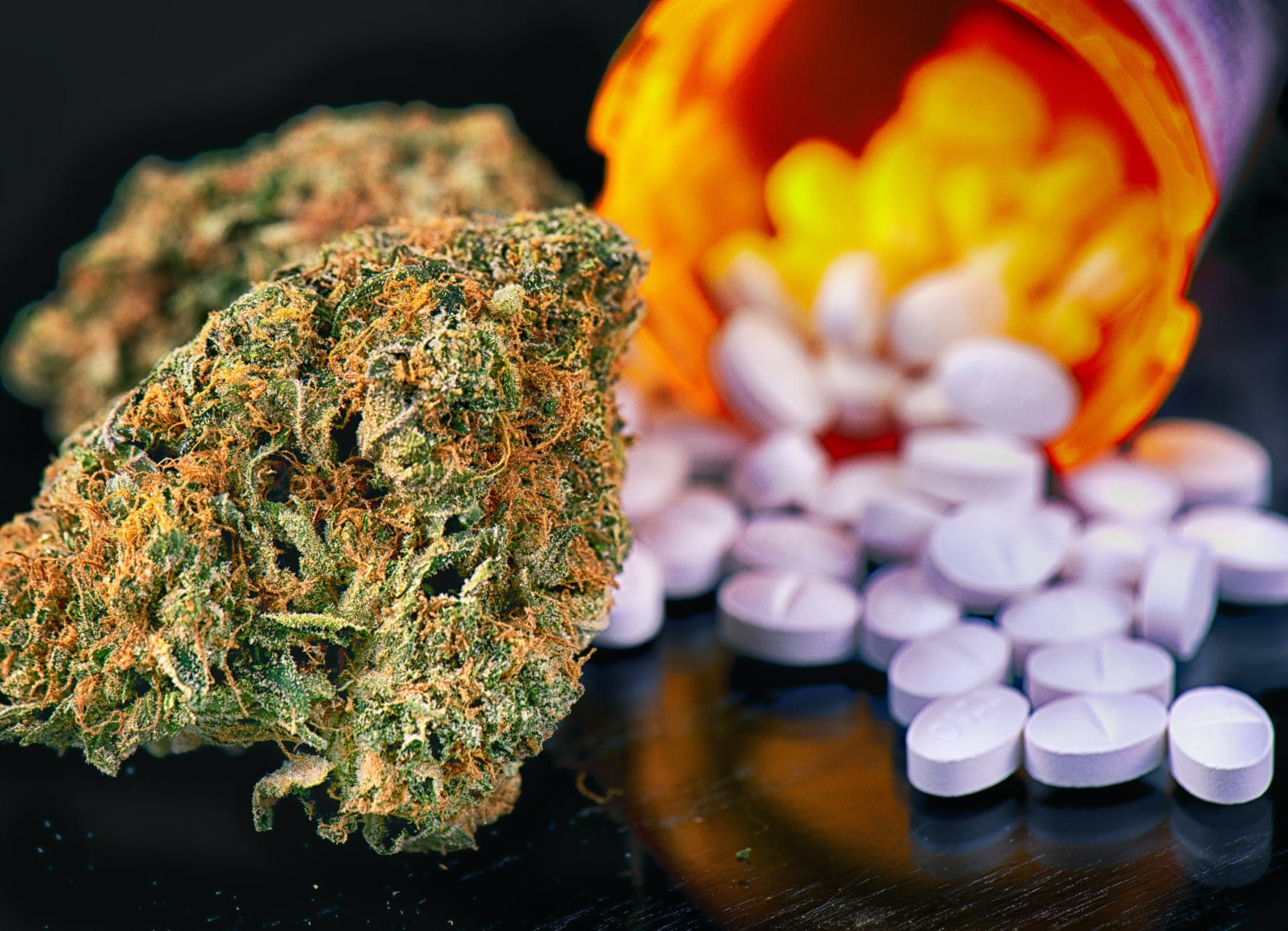There’s a pain epidemic in America. According to the Centers for Disease Control, 30% of Americans live with chronic pain. This is more than the number of people with heart disease, cancer and diabetes combined.
The pain crisis is a driving force behind another skyrocketing public health emergency: the opioid crisis. We all know about the rising rates of addiction and overdose deaths related to these powerful prescription painkillers.
FOLLOW US ON FACEBOOK & INSTAGRAM
But recent research shows that cannabis can relieve pain, too—and cannabis and opioids combined can relieve pain more effectively than either one can do alone.
This is good news. But it raises another concern around the well-documented side effects of opioids, which include:
- Confusion
- Memory problems
- Drowsiness
People can experience similar effects with cannabis, too, especially if it’s high in tetrahydrocannabinol (THC). If cannabis and opioids are more effective together for pain, could this combination cause even more cognitive problems than either opioids or cannabis alone?
An unusual study by researchers at the University of Texas at San Antonio set out to find the answer—and came away with surprising results.
The 2014 study tested combinations of synthetic opioids and cannabinoids on a group of monkeys who were given a series of tasks to do. At the end of the study, researchers concluded that a combination of opioids and cannabis actually caused fewer signs of cognitive impairment than either did when consumed individually.
The study was small and involved animals, not humans. So, there’s much more research needed to understand exactly why the opioid and cannabis combination didn’t cause the cognitive deficits researchers expected to see.
But it reveals more data showing that cannabis can work with opioids to provide safer pain relief with fewer side effects.
Cannabis & the Brain: A Complex Relationship
Cannabis has a complex and contradictory relationship with brain functioning. This is thanks largely to the presence of THC, the compound in marijuana that causes many people to experience a sense of euphoria. But under some circumstances, and in some people, cannabis can have the opposite effect, causing feelings of anxiety and even paranoia.
Numerous studies have also shown that heavy or long-term use of cannabis can cause problems with memory and cognition, especially in young consumers whose brains are still forming essential neural connections.
But other research suggests that cannabis can protect brain cells from damage caused by trauma and brain disorders such as:
- Alzheimer’s disease
- Prion diseases
- Other kinds of dementia
In these situations, cannabis can support cognitive health, rather than impair it.
RELATED: HOW CANNABIS WORKS TO PROTECT & REPAIR THE BRAIN
All of these contradictory effects are the results of the interaction of various cannabis compounds with the body’s endocannabinoid system (ECS)—a rich network of two kinds of receptors, called CB1 and CB2. These receptors are found on cells throughout the body, and especially in certain parts of the brain.
CB1 and CB2 receptors respond to cannabinoid-like neurotransmitters that the body produces naturally, called endocannabinoids, as well as to cannabinoids from external sources, especially the Cannabis sativa plant itself.
Although everyone has an ECS, the number and location of the receptors can vary, and so can the strength of their responses. This helps explain why cannabis can have different effects on different people.
For example, cannabis can activate receptors in an area of the brain called the hypothalamus, which regulates appetite and some hormone functions. This explains why many people feel hungry when they consume cannabis.
Or, cannabis may trigger receptors in the amygdala, the seat of the fear response. This kind of interaction with the plant can make a person feel overanxious and paranoid.
Cannabis can also activate receptors in the neocortex and hippocampus, which play important roles in higher cognitive functions, memory and concentration.
The composition of cannabis also plays a role in what happens to the brain. Cannabidiol (CBD) and other cannabinoids can affect the powerful outcomes of THC reacting with the CB1 and CB2 receptors in the brain.
CBD along with other select cannabinoids don’t bring on a high like THC can. Plus, they can moderate the effects of THC so that they don’t get out of hand and trigger anxiety and distress. The combination of THC and other cannabinoids can often be more effective in relieving pain, anxiety and other conditions than a single compound can in isolation.
RELATED: TURNING TO CANNABIS IN THE FACE OF THE OPIOID CRISIS
Opioid & Cannabinoid Receptor Systems Can Interact
Just as cannabinoids trigger responses in the body’s ECS, opioid medications have a strong, immediate effect on the body’s system of opioid receptors. These receptors respond not only to natural opiate-like chemicals, but also to opioids like:
- Morphine
- Heroin
- Oxycodone
Opioid receptors are highly concentrated in the brain, particularly in areas that are responsible for responses to mood and pain signaling, as well as the cycle of pleasure and reward. This explains why opioids can relieve pain—and also why they can become quickly and powerfully addictive.
Both endocannabinoid and opioid receptors appear in areas of the brain that regulate:
- Pain signals
- Mood
- Pleasure responses
This is why taking both cannabis and opioid medications together can relieve conditions like:
- Pain
- Anxiety
- Depression
And this is also the reason why both of them together can offer better relief than either substance can do individually. Consuming cannabis alongside opioids can also mean that people can take lower doses of opioids and experience the same level of relief, which reduces the risk of overdose.
The interconnectedness of the opioid and cannabinoid receptor systems may also help explain why pain relief increases when someone consumes cannabis and opioids together. It may also be the key to why the cognitive problems that both these substances can cause appear to decrease when they’re combined.
Some research on the effects of cannabis and cognition has revealed that cannabis is a natural neuroprotectant capable of protecting brain cells from damage caused by trauma and dementia-related conditions. And many cannabis consumers also report that certain marijuana strains, especially ones that are high in CBD, can help with focus and concentration.
Researchers at the University of Texas acknowledge that more research needs to be done to understand why consuming cannabis and opioids together causes fewer problems with memory and cognition than either would individually. But their limited study sheds more light on the connections among cannabis compounds, opioid drugs and the complex cognitive functions of the brain.
Photo credit: Roxana Gonzalez/Shutterstock.com
If you’re new to cannabis and want to learn more, take a look at our Cannabis 101 index of articles. And if you have questions about cannabis, ask them and our community will answer.






